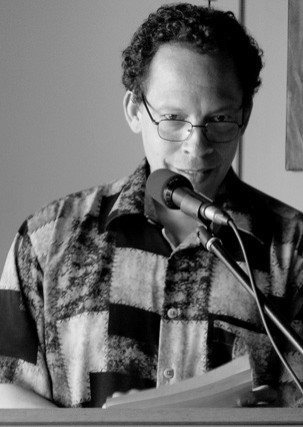“Everybody has a connection to blood. It unites us and divides us”
Often we assume that people who are really good at something don’t really have to work at it: that it just comes easy to them, that it’s in their blood.
In Blood: The Stuff of Life, the 2013 Massey Lectures, Lawrence Hill explores this assumption — which, like many, relates back to the red life-giving fluid that runs through our veins. The pan-Canadian series is coming to Concordia for the first time this year, with the award-winning author’s inaugural lecture on Tuesday, October 15.
For the accompanying book, Hill has woven fascinating scientific breakthroughs, historical events, personal anecdotes and insights into an easy, enlightening read in a way that seems, well … effortless. He hastens to point out, though, that it involved a considerable amount of work.
“I still don’t feel that writing is in my blood,” he writes. “It is in my brain, and in my work, and in the hours I have invested and the hours I have yet to invest.”
 Photo by Taylor Leedahl
Photo by Taylor Leedahl
On the phone from his home in Hamilton, Ontario, Hill elaborates. Taking on such a huge topic was daunting, so he started by exploring aspects of blood that were most fascinating to him on a personal level.
“Perceptions of the blood in our bodies and the way that we relate to our blood affects notions of individual identity, belonging, nationality, gender, race, religion, politics,” he says. “Blood seems to enter just about every facet of our lives. I wanted to write a book that explores the connections between the metaphor of blood, and the ideas we have about blood, and the way our lives actually play out.”
Hill is best known as the author of The Book of Negroes, which won the 2008 Commonwealth Writers’ Award, and his 2011 memoir Black Berry, Sweet Juice: On Being Black and White. With Blood, Hill touches on issues that are close to his heart — racial identity, slavery and black history — but does not limit himself to these themes.
“I didn’t want that to be the central focus of my meditation,” he says. “I wanted to discuss something larger, something that could unite everybody. I think everybody has a connection to blood. It unites us and divides us.”
Many of the anecdotes are deeply personal: Hill’s adolescent struggles to excel at running and impress his “hard-working, domineering, charismatic” father; his attempt to come to terms with his racial identity during an illness on a volunteer stint in Niger; his diabetes diagnosis at the age of 44. But the author also hopes to shed new light on the science of blood, and many of our current and historical beliefs about its power to define us.
“Blood is a bodily substance that we hold up as sacrosanct. It means so much to us, not only as a life-saving fluid, but also as a symbol of our humanity.”
The writing is done, but the lectures have yet to begin. After his stint at the D.B. Clarke Theatre in the Henry F. Hall Building, Hill travels on to Halifax, Edmonton, Vancouver and Toronto. All five lectures will be broadcast by the CBC Radio program Ideas, and published by House of Anansi Press.
Hill says he’s looking forward to the cross-country tour. “It means a great deal to me. I’m a novelist, but I’m also a public intellectual, a thinker. It’s a privilege to share my thoughts and observations and wishes with a world of readers and listeners. It’s a huge honour, and I hope that I do a good job at it.”
Tickets to the 2013 Massey Lectures are for sale online at Admission.com and by phone at 1-855-790-1245.
Lawrence Hill’s advice for aspiring writers
"The most magically vital bit of advice boils down to the acronym G.Y.A.I.C., and that stands for: Get Your Ass In a Chair.
"If you want to write, you have to be prepared to spend a lot of time alone. Turn off any external devices and focus. Get comfortable in your own heart and soul and mind and thoughts. And get comfortable with the idea that you may be writing for weeks and months and possibly years without having any immediate feedback, and without knowing for sure whether what you’ve done will see the light of day, and be read by other people. You have to have faith.
"It isn’t a very romantic process. You really have to sit there, on your own, writing and thinking. The more you do that as a developing writer, the more naturally it comes, and the more easily you’ll find a voice and a way to express yourself in a way that seems engaging and believable to readers."